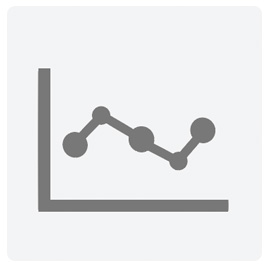Undergraduate experience is assessed through surveys of students. The National Survey of Student Engagement (NSSE), conducted by the Center for Postsecondary Research at Indiana University, was administered during spring semester to campus-based random samples of first-year (freshmen) and graduating senior students at UW four-year institutions. National comparison data are drawn from a custom NSSE tabulation of all participating U.S. public four-year higher education institutions. Peer comparison data are based on participating public institutions with similar characteristics and exclude the UW university selected on the dashboard. The NSSE survey was updated in 2013, and many questions were reworded to improve clarity and relevance. Survey results beginning in 2013 may not be directly comparable to prior years.
UW Undergraduate Experience Peers xlsx
Participation in high-impact practices
Rates of participation indicate the proportion of students responding “done or in progress” to the following items (variables) from the NSSE: learning community (learncom), research with faculty (research), internship (intern), study abroad (abroad), and culminating senior experience (capstone). Participation in service learning (servcourse) indicates that at least “some” courses included a community-based project.
Contribution of college experience to critical thinking
Rates indicate the proportion of students responding “quite a bit” or “very much” to the following items (variables) from the NSSE: thinking critically and analytically (pgthink), analyzing an idea in depth (HOanalyze), and applying facts, theories, or methods (HOapply).
Overall college experience
Rates indicate the proportion of students responding as follows to items (variables) from the NSSE: entire educational experience (evalexp) of “good” or “excellent”, and attend institution again (sameinst) of “probably” or “definitely” yes.
Availability of general education courses is an extra survey question added by UW universities except UW-Milwaukee in each year and UW-Madison in 2023. National and peer comparison data are not available.








